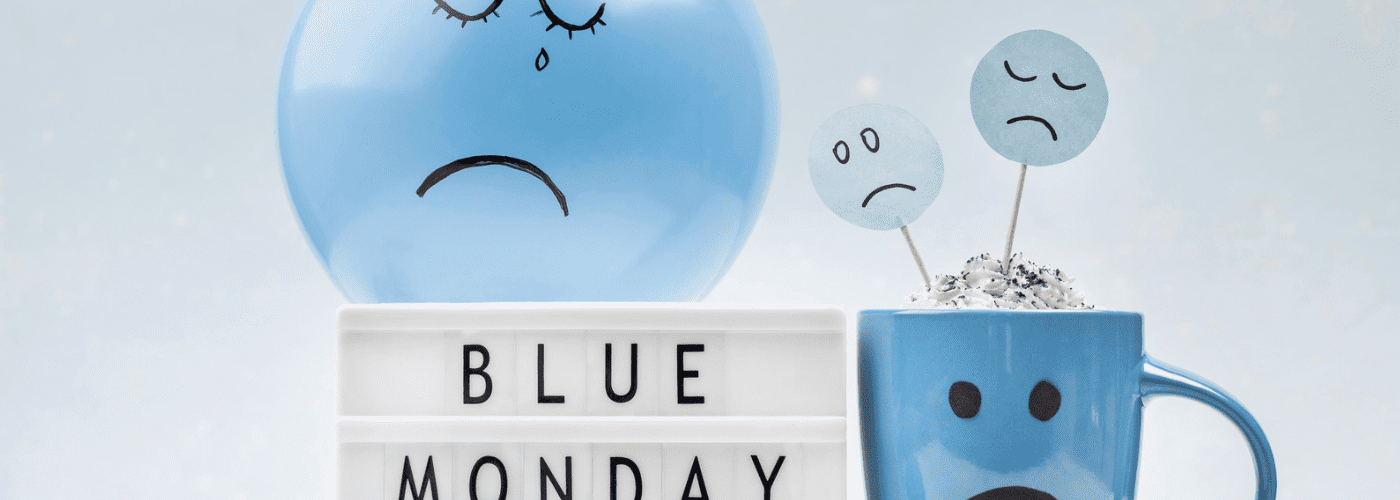Five Marketing Predictions for 2025
Jan 2, 2025By this point, most marketers have become accustomed to the never ending whirlwind of change and evolution in the digital…

The only thing that #BlueMonday proves is the power of marketing. But what can we learn?
Blue Monday is the worst day in January. It’s cold and dark, ages since Christmas and for many of us, a time of tight belts and tighter wallets. Science has shown that the third Monday of January is the day we all feel at our worst in the new year. Except… it hasn’t.
Despite reappearing each year as a social media trend, Blue Monday isn’t backed by real science, and there’s no proof that it is any worse or better than every other day of everyone’s least favourite month. Of course, the post-holiday blues hit us hard when the nights are still long, but this particular Monday gets a bad rap for no particular reason.
In fact, the only thing that #BlueMonday proves is the power of marketing.
Blue Monday can be traced back to 2004, when psychologist Cliff Arnall came up with a ‘formula’ that suggested that the third Monday of January was when everybody was at their lowest post Christmas. The formula in question? [W+(D-d)]xTQ/MxNA.
It certainly looks like a formula. Except, when you break it down, it starts to look a little bit iffy.
W = weather
D = debt
d = monthly salary
T = time since Christmas
Q = time since failing our New Year’s resolutions
M = low motivational levels
Na = the feeling of a need to take action
It starts to sound even more questionable when you discover that it was created in partnership with the now-defunct Sky Travel to advertise their winter holidays. That’s right, Blue Monday isn’t just fake, it’s marketing.
Even the creator, who was apparently paid £1200 for his part in the creation of Blue Monday, has described it as pseudoscience and urged people to ignore it.
In 2013, Cliff, speaking to the Daily Telegraph, said: “I was originally asked to come up with what I thought was the best day to book a summer holiday but when I started thinking about the motives for booking a holiday, reflecting on what thousands had told me during stress management or happiness workshops, there were these factors that pointed to the third Monday in January as being particularly depressing.”
“I’m pleased about the impact if it means people are talking about depression and how they feel but I’m also encouraging people to refute the whole notion of there being a most depressing day and to use the day as a springboard for the things that really matter in your life.”
Since its inception, and the advent of social media hashtags, Blue Monday has only increased in popularity. Each year, brands rally to leverage this event into sales, with varying degrees of success.
In 2015, Tesco capitalised on January’s reputation as the month of diets and created Blueberry Monday, where it offered free fruit to shoppers as an incentive to continue eating well post-Christmas.
Blue Monday participation can be as simple as a Tweet, as proved by the team behind the Star Wars UK Twitter account, who in 2016 tweeted: ‘beat #BlueMonday. With a lightsaber if necessary.’
It’s not just brands either. Charities, such as the Donkey Sanctuary, often use the tag to drive awareness. This year, the Samaritans have turned it into #BrewMonday, highlighting the very real depression many people feel in January, though perhaps not specifically on the third Monday.
At this point, Blue Monday could be considered a self-fulfilling prophecy, nevertheless it has become a prime example of the effectiveness of a very simple idea. Despite being created for one – now defunct – brand in particular, it has taken on a life of its own and become an opportunity for all brands to take advantage of.
More noticeably, the marketing conversation around the idea of Blue Monday has begun to lean towards the idea of self-care, rather than treating it as an advertising free-for-all full of giveaways. Simply tweeting that your product could be a cure for Blue Monday – as holidays were for Sky Travel in 2005 – may not be as effective as you might hope.
Instead, people-centric brands can encourage their followers to challenge the idea of Blue Monday themselves, with a more sensitive approach. The advent of social media and the continuing personalisation of brands means people respond better to humanised messaging, so ensuring you are interacting with the idea of Blue Monday instead of just tagging it is vital.
January can be a difficult month for us all, whatever the date, so even though Blue Monday is pseudoscience, it can certainly teach us something about marketing. Because really, that’s all it is.
For advice on how to get the most out of your social media or search engine marketing, visit our services page, or contact us.

By this point, most marketers have become accustomed to the never ending whirlwind of change and evolution in the digital…

For any business, a website needs to do more than just look good. Whether it’s lead generation, boosting sales or…

Every year, Extramile sends some of its digital marketing team to BrightonSEO to learn advances in the search world, and…

Did you know that out of the estimated 5.44 billion users accessing the web, approximately 64.04% of all traffic can…